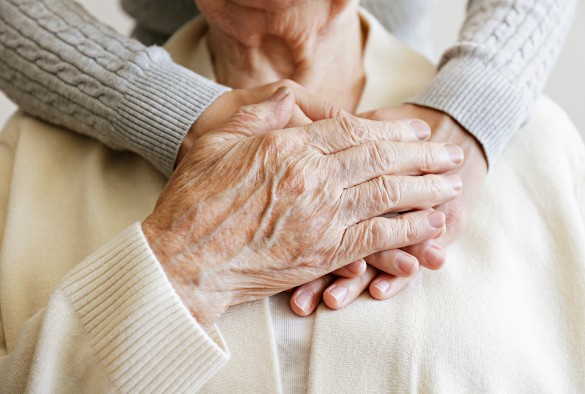
The first paper to give voice to those bereaved during the COVID-19 pandemic has been published today in Palliative Medicine.
Researchers at the Universities of Liverpool, Oxford and Sheffield explored the impact of restricted visiting to hospitals and care homes due to COVID-19 on relatives' experience of their loved-one's final days.
The study makes important recommendations for health and social care professionals providing end-of-life care during a pandemic:
- Prioritise connectedness between patients and relatives using video and telephone calls.
- Provide relatives with regular telephone updates about personal aspects of care (such as what they had eaten and if they had been able to communicate).
- Offer advice and guidance about how to prepare children for the death of a loved one.
- Facilitate opportunities for relatives to 'say goodbye' in person before death wherever possible.
The research team says that adopting these recommendations is important as previous research shows when the needs of relatives are addressed at the time a family member is dying, they cope and adjust better in bereavement with improved psychological outcomes and satisfaction with end-of-life care.
During the pandemic, relatives report that they are aware of the multiple demands on health and social care professionals and felt they are 'doing their best given the situation' but identify practical changes that could have made a difference to their experience of bereavement and loss.
Study co-lead, Dr Stephen Mason, Research and Development Lead for the Palliative Care Unit, University of Liverpool said: 'Our analysis of the experiences of bereaved relatives and health and social care professionals continues, with the hope of providing further insights in how we can maintain and potentially improve care within the limitations of necessary pandemic public health restrictions.'
Lead author, Dr Jeff Hanna, Department of Psychiatry, University of Oxford, said: 'This timely research reports important recommendations for health and social care professionals as they provide end-of-life care during a pandemic. They have a pivotal role in facilitating vital interactions between relatives and their loved ones. The vast number of deaths in the UK means this work provides salient lessons for supporting families at end-of-life.'
Study co-lead, Dr Catriona Mayland, Department of Oncology and Metabolism, University of Sheffield, said: 'Health and social care professionals had very little time to prepare or train for the impact of the pandemic. They faced an increased workload with competing demands and heightened complexity.'
This research is funded by Westminster Foundation and Yorkshire Cancer Research.
The full paper can be found here.






